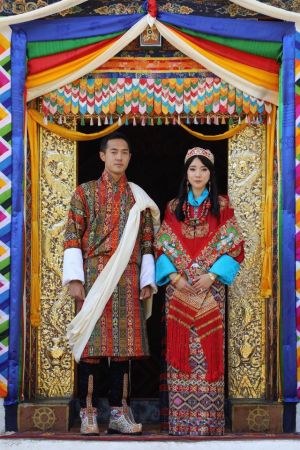Difference between revisions of "Bodhisattvabhumi sutra"
Jump to navigation
Jump to search
(Created page with " Bodhisattvabhumi sutra; A Mahãyãna text allegedly composed by Asanga, which expounded the stages (bhūmis) of the bodhisattva’s path. The text...") |
|||
| (2 intermediate revisions by the same user not shown) | |||
| Line 1: | Line 1: | ||
| + | [[File:123250 ut.jpg|thumb]] | ||
| Line 4: | Line 5: | ||
| − | [[Bodhisattvabhumi]] [[sutra]]; A [[Mahãyãna]] text allegedly composed by [[Asanga]], which expounded the stages ([[bhūmis]]) of the [[bodhisattva’s path]]. The text was the 15th largest part of the Yogãcãrabhūmi. | + | [[Bodhisattvabhumi]] [[sutra]]; A [[Mahãyãna]] text allegedly composed by [[Asanga]], which expounded the stages ([[bhūmis]]) of the [[bodhisattva’s path]]. The text was the 15th largest part of the [[Yogãcãrabhūmi]]. |
| − | Due to it’s popularly, it was translated into {{Wiki|Chinese}} by [[Dharmaraksha]] (between 414–418), [[Gunavarman]] (431), and [[Hsüan-tsang]] (647). [[Tibetan]] and {{Wiki|Mongolian}} translations were also done. The [[four parts]] of the [[book]] covered the major features and practices of a [[bodhisattva]], subsidiary practices, {{Wiki|training}} outcomes, and a summary of the [[path]]. | + | Due to it’s popularly, it was translated into {{Wiki|Chinese}} by [[Dharmaraksha]] (between 414–418), [[Gunavarman]] (431), and [[Hsüan-tsang]] (647). [[Tibetan]] and {{Wiki|Mongolian}} translations were also done. |
| + | |||
| + | The [[four parts]] of the [[book]] covered the major features and practices of a [[bodhisattva]], subsidiary practices, {{Wiki|training}} outcomes, and a summary of the [[path]]. | ||
{{R}} | {{R}} | ||
| − | [[Category:Bodhisattva]] | + | [[Category:Bodhisattva's]] |
Latest revision as of 21:59, 30 November 2020
Bodhisattvabhumi sutra; A Mahãyãna text allegedly composed by Asanga, which expounded the stages (bhūmis) of the bodhisattva’s path. The text was the 15th largest part of the Yogãcãrabhūmi.
Due to it’s popularly, it was translated into Chinese by Dharmaraksha (between 414–418), Gunavarman (431), and Hsüan-tsang (647). Tibetan and Mongolian translations were also done.
The four parts of the book covered the major features and practices of a bodhisattva, subsidiary practices, training outcomes, and a summary of the path.
